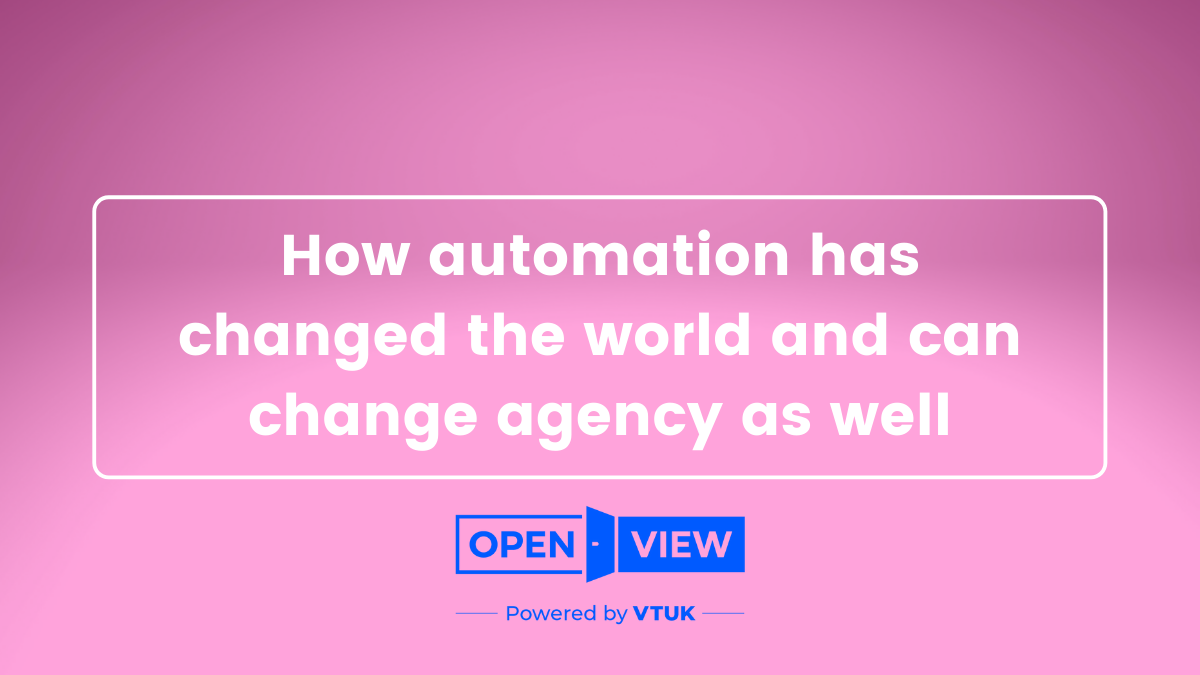Throughout the years, various companies and individuals have integrated automation with their day-to-day lives in or order to help improve the way their business functions and the productivity of tasks.
Automation involves minimising human input and applying technology to drive efficiency – particularly in tasks that are laborious and time-consuming. This is often done to produce and deliver both goods and services. An example of an automated innovation that changed the world is the arrival of the Automated Teller Machine (more commonly known as ATMs), with Barclays bank the first to install an ATM anywhere in the world in 1967, meaning people no longer had to rely on tellers at banks – which typically closed mid-afternoon – to access their cash.
Such technology was the pre-cursor to the machines we now seen in coach, bus and train stations, and airports too, as well as supermarkets and certain fast-food chains in the form of self-checkout machines.
According to Openview – Powered by VTUK, automation has changed the world for the better in a drastic way and it has the ability to change agency as well.
The wonder of automation
We don’t need to look very far to find examples of automation changing the world, from AI to contactless technology, from smart home appliances to electric or self-driving vehicles.
In our everyday lives, whether it be travelling on the DLR (entirely automated) or a Tube (mostly automated), using a lift or tapping our card at the supermarket, automation makes processes faster and more efficient, and is there to make lives easier by doing the jobs that humans either can’t do or would take a long time to do.
It can help to improve economies, scale up manufacturing, improve travel and play its part in greening the planet.
And it can also play a key part in the next evolution of the property sector, according to Openview.
Everyone in every industry benefits
Often the assumption that labour shortages are a direct result of automation is held by staff that feel new technology and automated processes increase the likelihood of being replaced by automation.
Peter Grant, chairman and chief executive at Openview, explains: “Those who do not truly understand the function of automation may fear being replaced, yet historically automation has had the opposite effect and created more opportunity.”
“The automated teller machine, most commonly known to you and me as an ATM machine, is now a way of life. However, at the time Barclays set up the first ATM machine in June 1967, many were slow to adapt,” he added.
“Staff at banks were able to free up time to communicate with customers and prospects. Early adopters of automation reap the most benefits and the same applies to PropTech in the property industry.”
The World Economic Forum predicts that automation will result in a net increase of 58 million jobs, while ARK Investment Management forecasts that in the next five years automation will add 5%, or $1.2 trillion, to US GDP.
In times of financial uncertainty, such as throughout the Covid-19 pandemic, time is a valuable asset. Automation allows individuals and companies to free people from time-consuming, repetitive tasks that machines perform more efficiently, allowing humans to create new jobs and put energy into creative aspects of the business.
Alter the standard for the better
Automation can alter the basic standard of living and work by providing more innovation and allowing individuals to focus on things that matter.
Peter Grant explains: “As long as agencies have a long-term goal in mind about what they want to achieve and are thoughtful when deciding the application, they can guarantee a forward momentum of progress to yield results.
“Since the Covid-19 pandemic, we have seen some incredible signs of recovery and growth despite the pressures. Agencies can rely on automation to help optimise and scale work.”
“Without automation, the success rate of transactions and good customer relationships during the pandemic would not have been possible. For example, within the rental market, the role automation played in preventing rent arrears was significant. It allowed agencies to chase rents arrears, improve communication and avoid potential risk – and it was the same for Right to Rent checks and compliance checks.”
Openview argues that mundane tasks in day-to-day life have been automated already around the globe and it is time the property industry does the same. Automation can also be also used to act as a reminder to agents about actions not yet performed.
“Openview has something known as ‘management by acceptation’, a way in which automation can prompt a question, notification or report on certain actions, missing information, or even as a security feature if certain actions have been performed,” Grant says.
Automation has already been widely adopted in day-to-day life because the tools are readily available, whereas the property industry has been one of the slowest to adapt. Recent statistics show that tenants treasure responsiveness and 69% of the leads prefer chatbots over human interaction, because of the rapid response rate.
“Whether it’s using the Siri app on a mobile device instead of scrolling online or connecting with a chatbot for a solution instead of being placed on hold, automation has changed the world,” Grant concluded. “At Openview, we believe that automation can change the property industry for the better too.”



